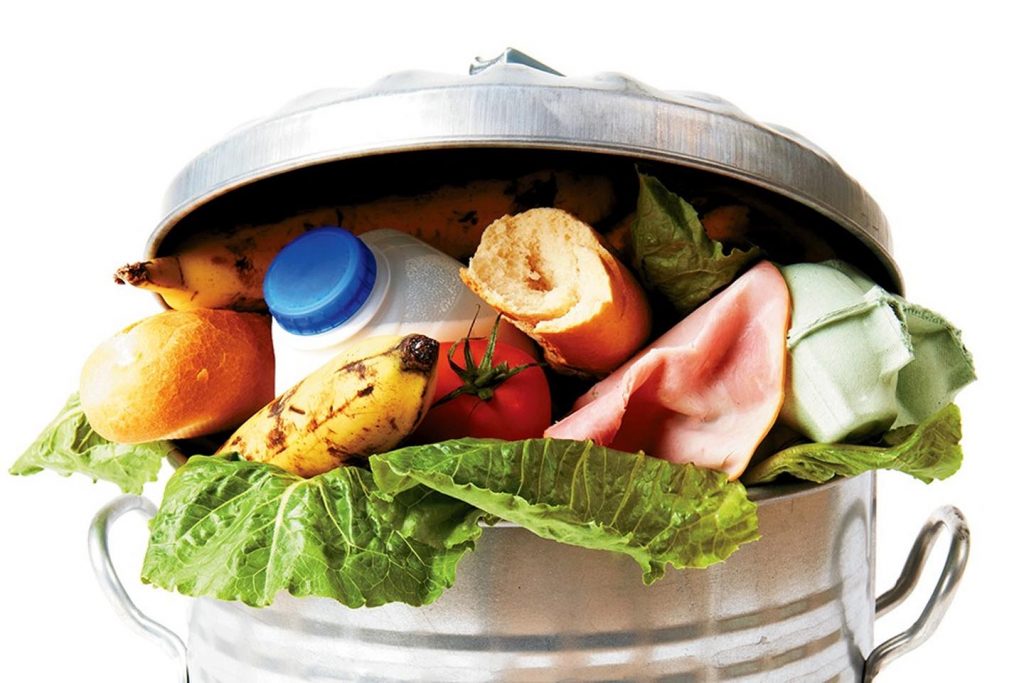80 billion pounds of food is thrown away each year in the U.S. alone (rts.com). That 80 million pounds of food is worth more than $161 billion dollars. That is an enormous amount of food and money wasted each year. Here are some more statistics:
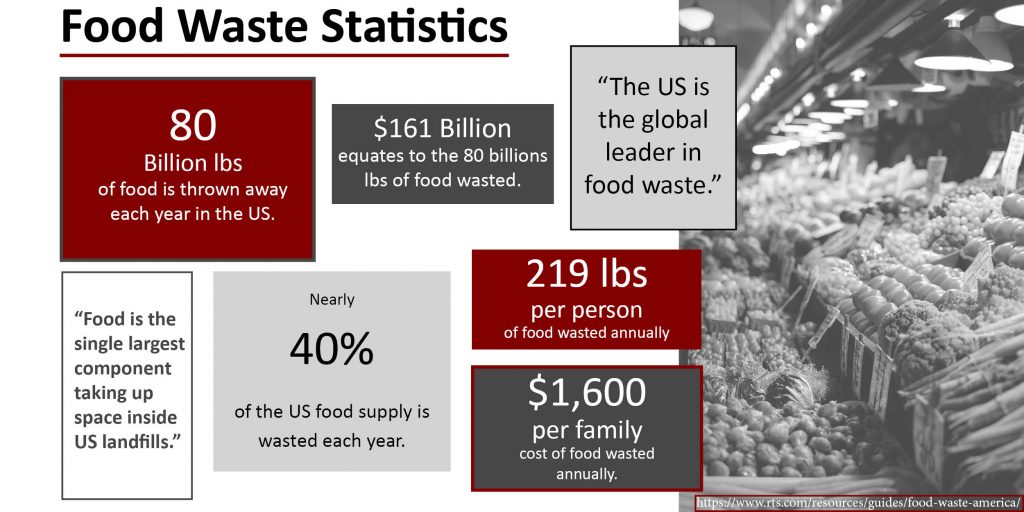
1. Buy What You Need
Many people tend to buy more than they actually need, and that food expires or rots before it can be consumed. For example, while bulk buying is a great way to save a few extra bucks it more often than not leads to extra food being wasted due to it not being used in the time before it expires. Here is a tip, make a point to use up all the groceries you bought on the last shopping trip before making another trip to the store.
2. Properly Store Food
When people store food incorrectly it leads to a massive amount of food waste. There are many guidelines and videos online that can teach you how to properly store certain foods. Here are a couple of ways to properly store food:
- Potatoes, tomatoes, garlic, cucumbers, and onions should never be refrigerated and kept at room temperature (healthline).
- Separate foods that produce more ethylene gas from those that do not. Ethylene promotes ripening in foods and could lead to spoilage. Here’s a list of foods that produce ethylene:
- Bananas
- Avocados
- Tomatoes
- Cantaloupes
- Peaches
- Pears
- Green onions
Keep those foods away from ethylene sensitive produce like potatoes, apples, leafy greens, berries, and peppers to avoid early spoilage (Healthline.com)
3. Buy the “Ugly” Apples.
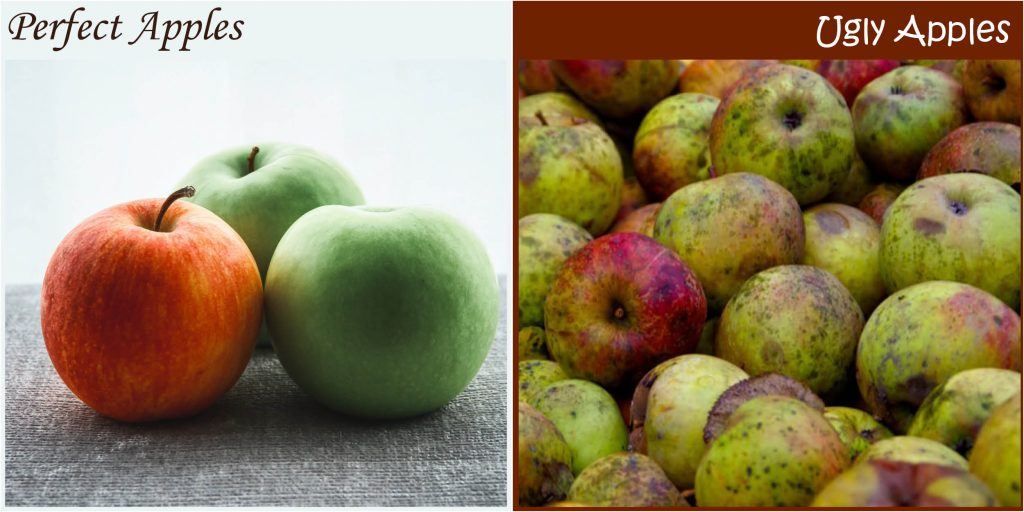
Even though those “Perfect” apples look like they taste much better than the uglier ones, that is not always true. The not as polished apples taste the same if not even a little bit better than the polished apples. The same goes for any fruit or vegetable! According to Health Line, “The consumer demand for flawless fruits and vegetables has led major grocery chains to buy only picture-perfect produce from farmers. This leads to tons of perfectly good food going to waste.” Many grocery stores are starting to sell the lesser appealing fruits and vegetables at discounted prices to help with the food waste problems. Buy those fruits and vegetables instead of the flawless ones if you can. Or better yet, check out your local farmers market and buy from them!
4. Understanding Expiration Dates
Now, this is where many people think that food is automatically not consumable if passed the best by date. That is not always true. Many foods, such as non-perishable goods can still be consumed even after their expiration date.
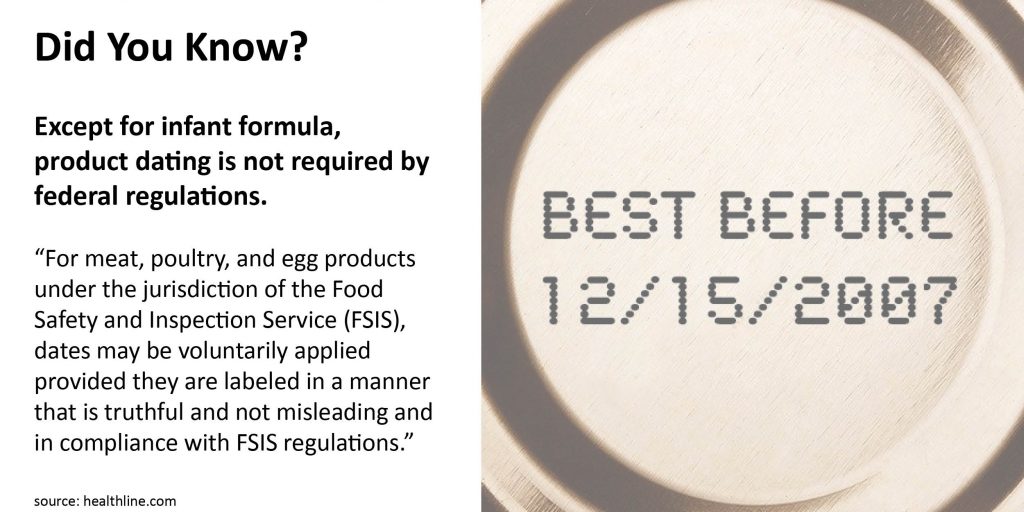
Manufactures have expiration dates to help consumers and retailers decided when food is of the best quality. But those dates are referring to the freshness of the product, not the product’s safety if consumed after a certain date. Manufactures determine the quality dates based on factors that can age the food. Such as length of time and temperature at which the food is held during distribution and offered for sale, the characteristics of the food, and the type of packaging (healthline.com). So, you can eat the food after its expiration date if the food does not show signs of spoilage. You never want to eat spoiled food.
Here is a list of dating phrases and what they mean:
- “Best if Used By/Best” date indicates when a product will be of the best flavor or quality. It is not a purchase or safety date.
- “Sell-By” date tells the store how long to display the product for sale for inventory management. It is not a safety date.
- “Use-By” date is the last date recommended for the use of the product while at peak quality. It is not a safety date except for when used on infant formula.
- “Freeze-By” date indicates when a product should be frozen to maintain peak quality. It is not a purchase or safety date.
To learn more about food spoilage and what to look for read an article posted on the FSIS website.
5. Compost Food!
Composting leftover food is a beneficial way to reuse food scraps or spoiled food and turn it into energy for plants. Composted food makes great fertilizer for those who have gardens and want to give their plants the best food. If you do not have space outside for an outdoor composter no need to worry! There are plenty of smaller, apartment size, composters you can use. The smaller, countertop composter is best for those in apartments with houseplants or herb gardens.
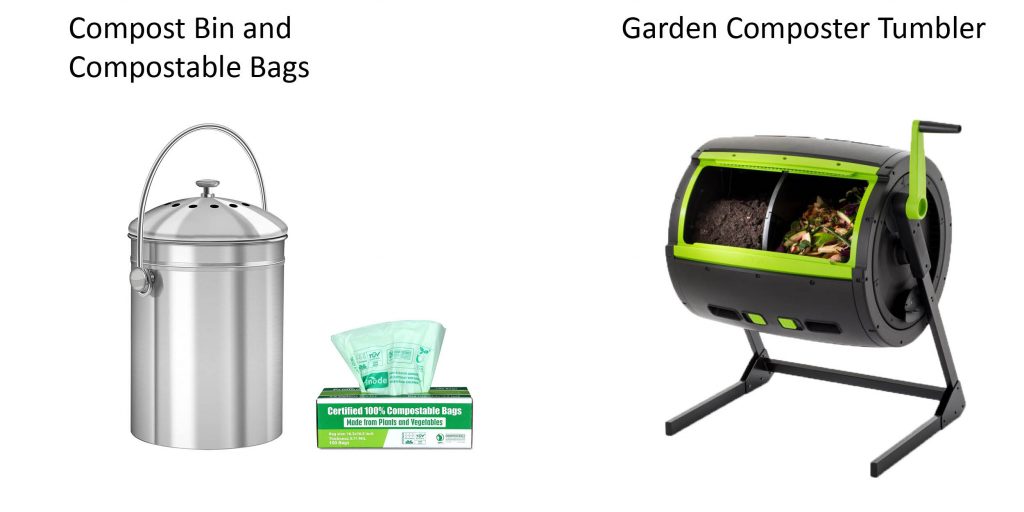
The compost bin and compostable bags are from Amazon and together they cost about $37. The best part about the more compact composters is that you can buy 100% compostable bags for them (like the bags in the above picture). You can throw out those bags without having to worry about them negatively impacting the environment! The garden composter tumbler is from Home Depot. This one is a bit on the pricier side and is made for those who have gardens and lots of food to compost! To find the best composter for your living space Google “Countertop compost bin” for a smaller composter and a “Large outdoor composter” for those with gardens!
6. Save Your Coffee Grounds!
Coffee grounds can be reused in many ways! Such as they are great fertilizers for plants since they are high in nitrogen, phosphorus, and potassium which are nutrients plants crave. Coffee grounds also make for a fantastic natural mosquito repellent! Who knew right?! According to Healthline, research has shown that sprinkling used coffee grounds on grassy areas deters female mosquitos from laying eggs, reducing the population of these pesky insects. Not only is coffee a must-have in the morning but you can use it to repel bugs!
If your workplace has a garden or plants in pots outside, you can put the used coffee grounds right on the soil. The grounds will begin to decompose, and the plants will absorb the nutrients from them. To help with the collection of office coffee grounds, you could set up a countertop compost bin next to the coffee machines in the office. Then about once a week (depending on how much coffee is used in the office) dump the coffee grounds on the plants’ soil.
To learn more about other ways you can contribute to reducing food waste read what the FDA has to say about food reduction.
How Crickler Helps Reduce Food Waste
Crickler takes our part in food reduction by recycling coffee pods (with coffee grounds in them) and we will donate food before it expires if we know the food will not be consumed before then. For our markets and vending machines, we want to ensure the food is used up before it is spoiled. We always put our best effort into ensuring your breakroom and vending machines are fully stocked. We also want to make sure the fresh food in them will not spoil and be thrown away. If you notice any of our markets have a low amount of fresh food or run out right before we deliver, that is us making sure we are reducing any food waste. If fresh food is consumed more often then we will add more products to our markets and vending machines! If you have any questions about the ways we ensure food safety and reduce food waste, ask us!
